P.1 What Is Psychology?
Once upon a time, on a planet in this neighborhood of the universe, there came to be people. Soon thereafter, these creatures became intensely interested in themselves and in one another: “Who are we? What produces our thoughts? Our feelings? Our actions? And how are we to understand and manage those around us?”
Psychological Science Is Born
To assist your active learning of psychology, numbered Learning Objectives, framed as questions, appear at the beginning of major sections. You can test your understanding by trying to answer the question before, and then again after, you read the section.
P-
To be human is to be curious about ourselves and the world around us. Before 300 b.c.e., the Greek naturalist and philosopher Aristotle theorized about learning and memory, motivation and emotion, perception and personality. Today we chuckle at some of his guesses, like his suggestion that a meal makes us sleepy by causing gas and heat to collect around the source of our personality, the heart. But credit Aristotle with asking the right questions.
Information sources are cited in parentheses, with name and date. Every citation can be found in the end-of-book References, with complete documentation that follows American Psychological Association (APA) style.
structuralism early school of thought promoted by Wundt and Titchener; used introspection to reveal the structure of the human mind.
Psychology’s First Laboratory Philosophers’ thinking about thinking continued until the birth of psychology as we know it, on a December day in 1879, in a small, third-
functionalism early school of thought promoted by James and influenced by Darwin; explored how mental and behavioral processes function—how they enable the organism to adapt, survive, and flourish.
Throughout the text, important concepts are boldfaced. As you study, you can find these terms with their definitions linked throughout and in the Glossary section of the e-Book.
Structuralism and Functionalism Before long, this new science of psychology became organized into different branches, or schools of thought, each promoted by pioneering thinkers. Two early schools were structuralism and functionalism.
3
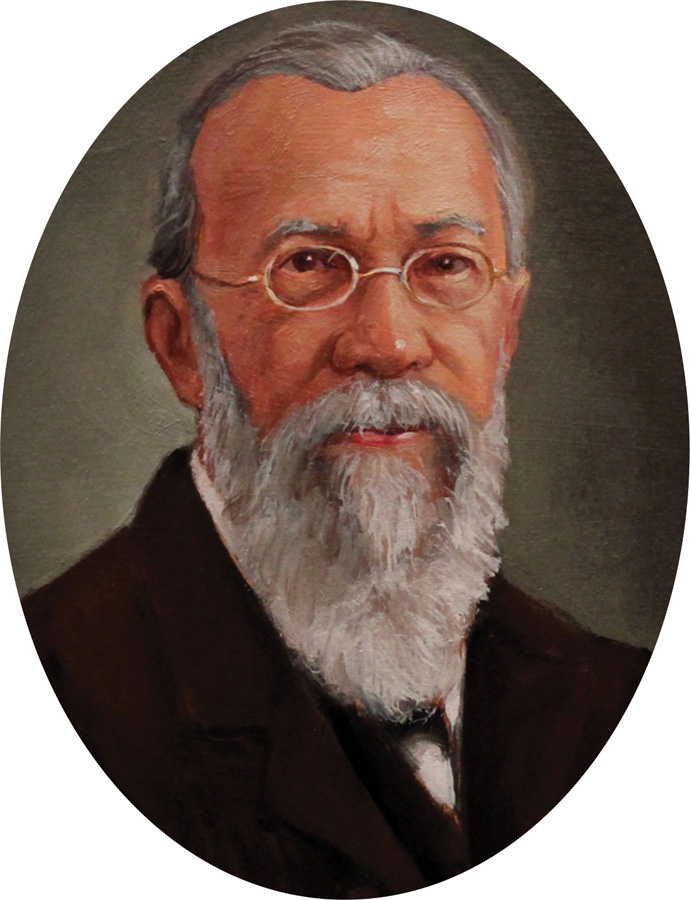
Wilhelm Wundt Wundt established the first psychology laboratory at the University of Leipzig, Germany.
|
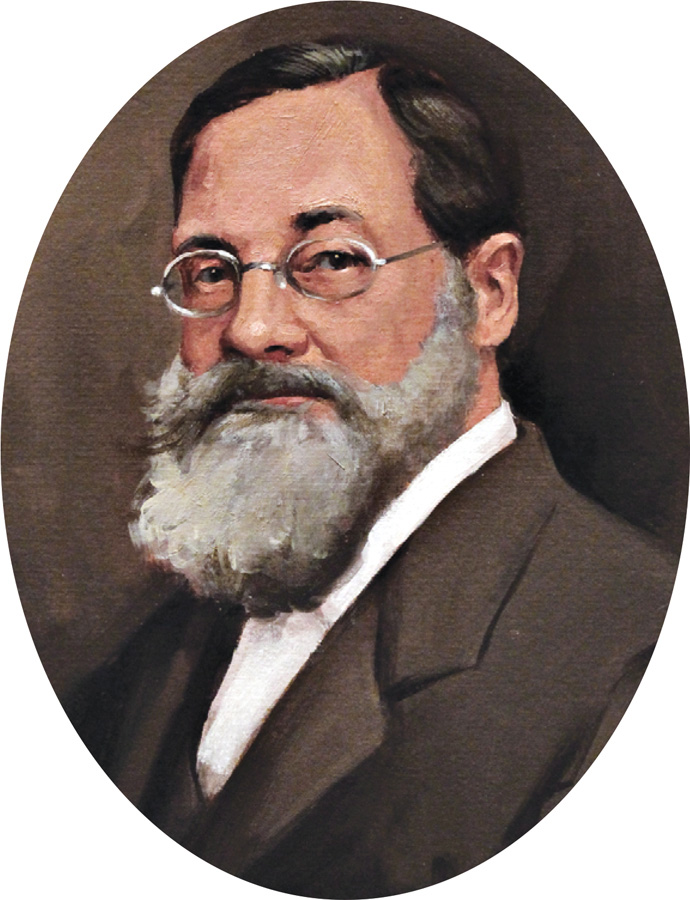
Edward Bradford Titchener Titchener used introspection to search for the mind’s structural elements.
|
STRUCTURALISM As physicists and chemists discerned the structure of matter, so Edward Bradford Titchener aimed to discover the mind’s structure. He engaged people in self-
FUNCTIONALISM Hoping to assemble the mind’s structure from simple elements was rather like trying to understand a car by examining its disconnected parts. Philosopher-
James’ writings moved the publisher Henry Holt to offer James a contract for a textbook of the new science of psychology. James agreed and began work in 1878, with an apology for requesting two years to finish his writing. The text proved an unexpected chore and actually took him 12 years. (Why am I not surprised?) More than a century later, people still read the resulting Principles of Psychology (1890) and marvel at the brilliance and elegance with which James introduced psychology to the educated public.
First Women in Psychology James’ legacy stems partly from his Harvard mentoring and his writing. In 1890, over the objections of Harvard’s president, he admitted Mary Whiton Calkins into his graduate seminar (Scarborough & Furumoto, 1987). (In those years women lacked even the right to vote.) When Calkins joined, the other students (all men) dropped out. So James tutored her alone. Later, she finished all of Harvard’s Ph.D. requirements, outscoring all the male students on the qualifying exams. Alas, Harvard denied her the degree she had earned, offering her instead a degree from Radcliffe College, its undergraduate “sister” school for women. Calkins resisted the unequal treatment and refused the degree. She nevertheless went on to become a distinguished memory researcher and the American Psychological Association’s (APA’s) first female president in 1905.
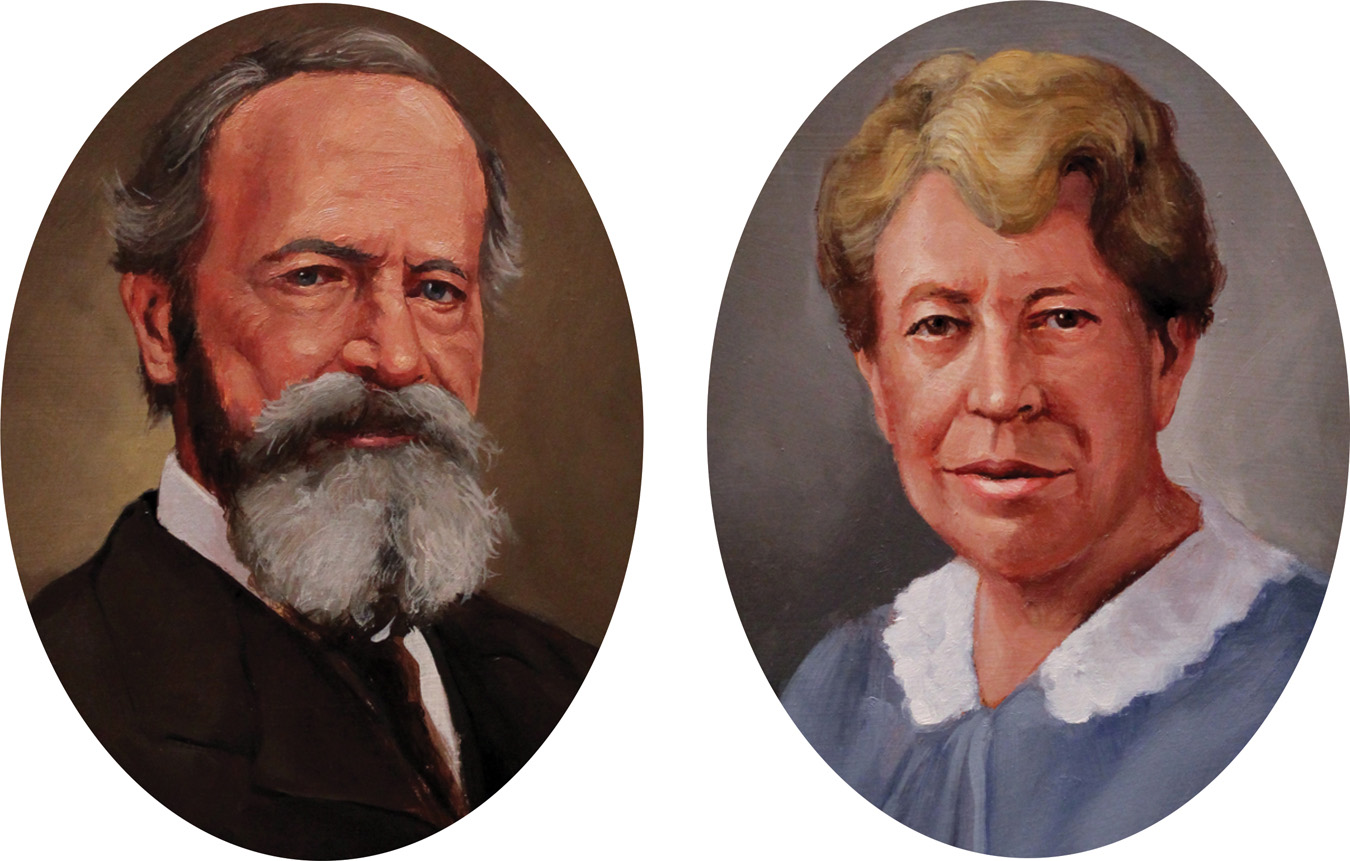
The honor of being the first female psychology Ph.D. later fell to Margaret Floy Washburn, who also wrote an influential book, The Animal Mind, and became the second female APA president in 1921. But Washburn’s gender barred doors for her, too. Although her thesis was the first foreign study Wundt published in his psychology journal, she could not join the all-
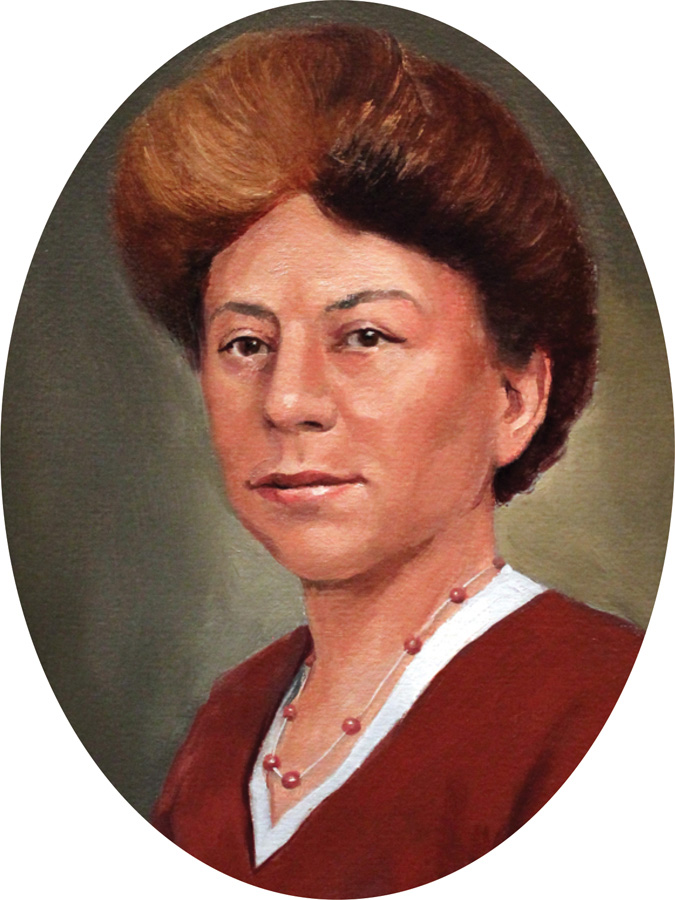
4
Study Tip: Memory research reveals a testing effect: We retain information much better if we actively retrieve it by self-testing and rehearsing. (More on this at the end of this Prologue.) To bolster your learning and memory, take advantage of the Retrieval Practice opportunities you’ll find throughout this text.
RETRIEVAL PRACTICE
- What event defined the start of scientific psychology?
Scientific psychology began in Germany in 1879 when Wilhelm Wundt opened the first psychology laboratory.
- Why did introspection fail as a method for understanding how the mind works?
People’s self-
- ______________ used introspection to define the mind’s makeup; ______________ focused on how mental processes enable us to adapt, survive, and flourish.
Structuralism; functionalism
Psychological Science Develops
P-
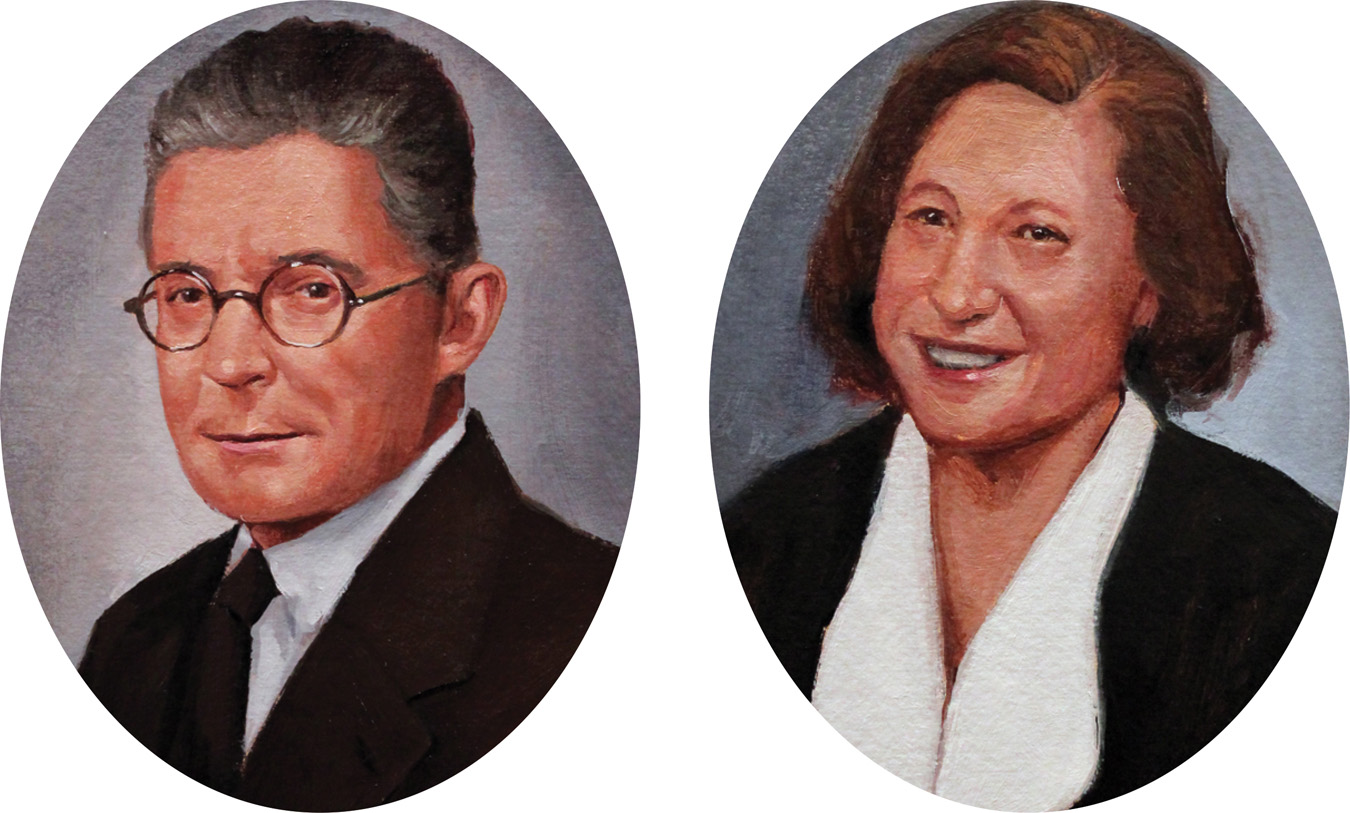
Behaviorism In the field’s early days, many psychologists shared with the English essayist C. S. Lewis the view that “there is one thing, and only one in the whole universe which we know more about than we could learn from external observation.” That one thing, Lewis said, is ourselves. “We have, so to speak, inside information” (1960, pp. 18–
behaviorism the view that psychology (1) should be an objective science that (2) studies behavior without reference to mental processes. Most psychologists today agree with (1) but not with (2).
That definition continued until the 1920s, when the first of two provocative American psychologists appeared on the scene. John B. Watson, and later B. F. Skinner, dismissed introspection and redefined psychology as “the scientific study of observable behavior.” After all, they said, science is rooted in observation: What you cannot observe and measure, you cannot scientifically study. You cannot observe a sensation, a feeling, or a thought, but you can observe and record people’s behavior as they respond to and learn in different situations. Many agreed, and the behaviorists became one of two major forces in psychology well into the 1960s.
Freudian Psychology The other major force was Freudian psychology, which emphasized the ways our unconscious thought processes and our emotional responses to childhood experiences affect our behavior. (In chapters to come, we’ll look more closely at Sigmund Freud’s teachings, including his theory of personality, and his views on unconscious sexual conflicts and the mind’s defenses against its own wishes and impulses.)
5
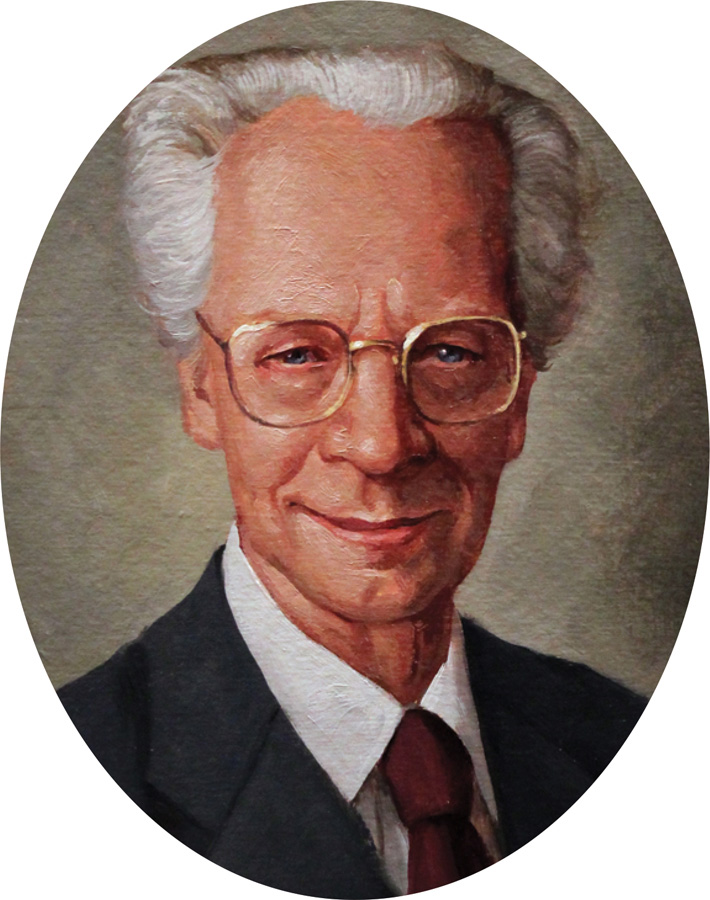
B. F. Skinner This leading behaviorist rejected introspection and studied how consequences shape behavior.
|
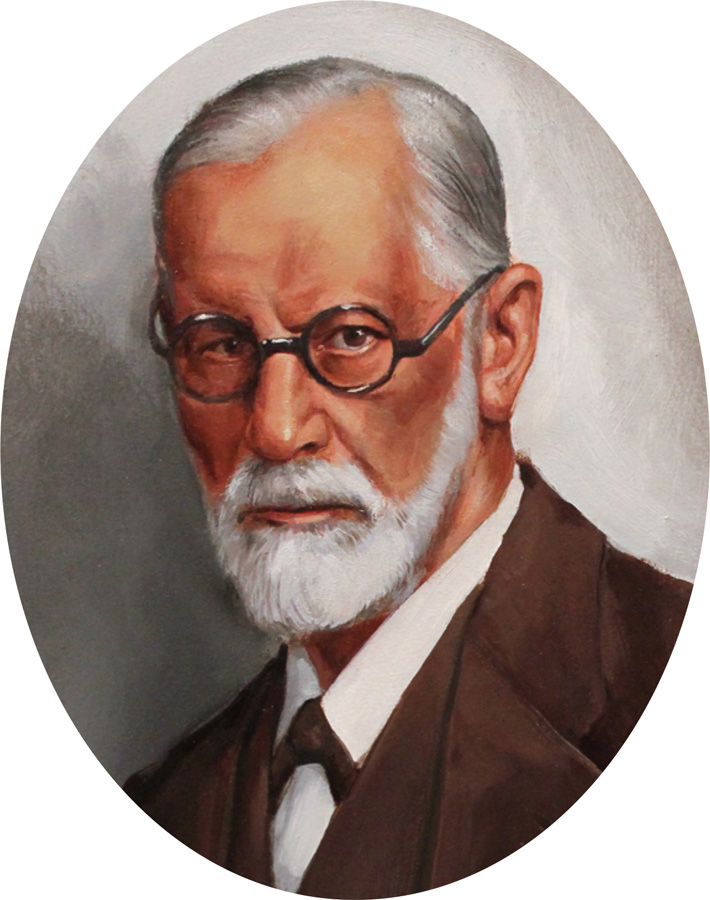
Sigmund Freud The controversial ideas of this famed personality theorist and therapist have influenced humanity’s self-
|
humanistic psychology historically significant perspective that emphasized human growth potential.
cognitive neuroscience the interdisciplinary study of the brain activity linked with cognition (including perception, thinking, memory, and language).
psychology the science of behavior and mental processes.
Humanistic Psychology As the behaviorists had rejected the early 1900’s definition of psychology, two other groups rejected the behaviorist definition in the 1960s. The first, the humanistic psychologists, led by Carl Rogers and Abraham Maslow, found both Freudian psychology and behaviorism too limiting. Rather than focusing on the meaning of early childhood memories or the learning of conditioned responses, the humanistic psychologists drew attention to ways that current environmental influences can nurture or limit our growth potential, and to the importance of having our needs for love and acceptance satisfied.
Cognitive Revolution In the 1960s, the cognitive revolution led the field back to its early interest in mental processes, such as the importance of how our mind processes and retains information. Cognitive psychology scientifically explores the ways we perceive, process, and remember information. The cognitive approach has given us new ways to understand ourselves and to treat disorders such as depression. Cognitive neuroscience was birthed by the marriage of cognitive psychology (the science of mind) and neuroscience (the science of brain). This interdisciplinary field studies the brain activity underlying mental activity.
Modern Definition of Psychology To encompass psychology’s concern with observable behavior and with inner thoughts and feelings, today we define psychology as the science of behavior and mental processes. Let’s unpack this definition. Behavior is anything an organism does—any action we can observe and record. Yelling, smiling, blinking, sweating, talking, and questionnaire marking are all observable behaviors. Mental processes are the internal, subjective experiences we infer from behavior—
The key word in psychology’s definition is science. Psychology is less a set of findings than a way of asking and answering questions. Our aim, then, is not merely to report results but also to show you how psychologists play their game. You will see how researchers evaluate conflicting opinions and ideas. And you will learn how all of us, whether scientists or simply curious people, can think smarter when experiencing and explaining the events of our lives.
6
RETRIEVAL PRACTICE
- From the 1920s through the 1960s, the two major forces in psychology were ______________ and ______________ psychology.
behaviorism; Freudian
- How did the cognitive revolution affect the field of psychology?
It recaptured the field’s early interest in mental processes and made them legitimate topics for scientific study.
Contemporary Psychology
P-
nature–nurture issue the longstanding controversy over the relative contributions that genes and experience make to the development of psychological traits and behaviors. Today’s science sees traits and behaviors arising from the interaction of nature and nurture.
The young science of psychology developed from the more established fields of philosophy and biology. Wundt was both a philosopher and a physiologist. James was an American philosopher. Freud was an Austrian physician. Ivan Pavlov, who pioneered the study of learning, was a Russian physiologist. Jean Piaget, the last century’s most influential observer of children, was a Swiss biologist. These “Magellans of the mind,” as Morton Hunt (1993) has called them, illustrate psychology’s origins in many disciplines and many countries.
natural selection the principle that, among the range of inherited trait variations, those contributing to reproduction and survival will most likely be passed on to succeeding generations.
Like those pioneers, today’s psychologists are citizens of many lands. The International Union of Psychological Science has 182 member nations, from Albania to Zimbabwe. In China, the first university psychology department began in 1978; by 2008 there were nearly 200 (Han, 2008; Tversky, 2008). Moreover, thanks to international publications, joint meetings, and the Internet, collaboration and communication now cross borders. Psychology is growing and it is globalizing. The story of psychology—
Evolutionary Psychology and Behavior Genetics
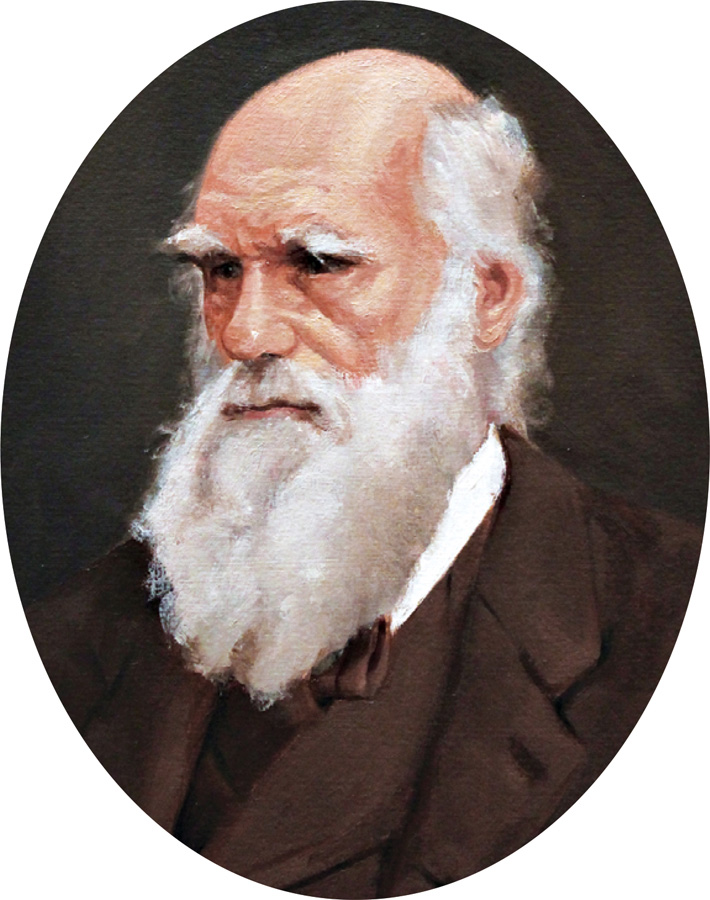
Are our human traits present at birth, or do they develop through experience? This has been psychology’s biggest and most persistent issue. But the debate over the nature-nurture issue is ancient. The Greek philosopher Plato (428–
evolutionary psychology the study of the evolution of behavior and the mind, using principles of natural selection.
In the 1600s, European philosophers rekindled the debate. John Locke argued that the mind is a blank slate on which experience writes. René Descartes disagreed, believing that some ideas are innate. Descartes’ views gained support from a curious naturalist two centuries later. In 1831, an indifferent student but ardent collector of beetles, mollusks, and shells set sail on a historic round-
behavior genetics the study of the relative power and limits of genetic and environmental influences on behavior.
7
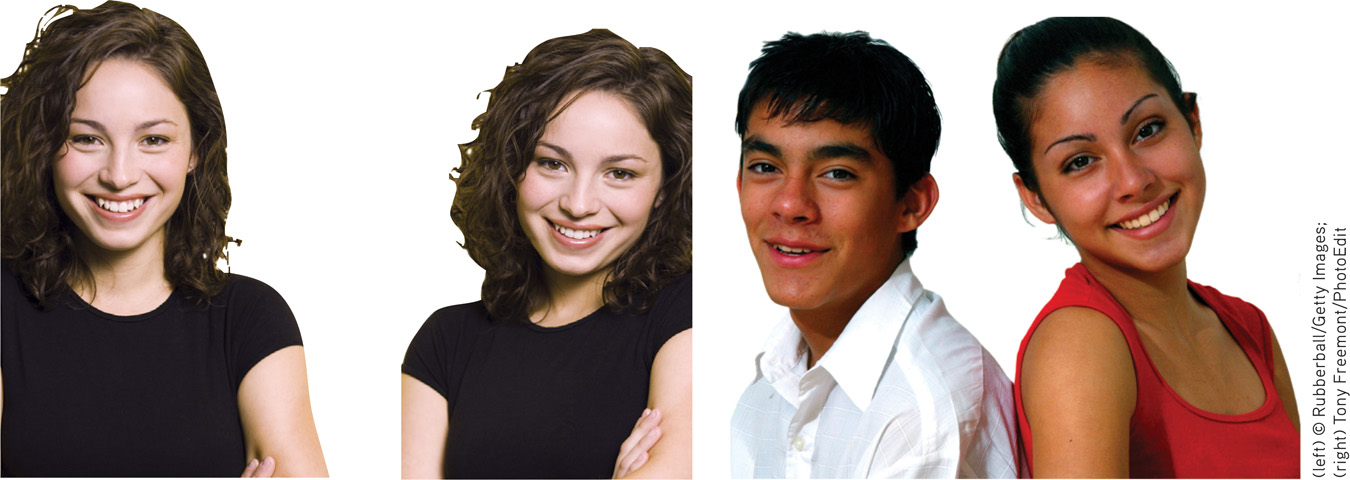
The nature–
Such debates continue. Yet over and over again we will see that in contemporary science the nature–
RETRIEVAL PRACTICE
- What is natural selection?
This is the process by which nature selects from chance variations the traits that best enable an organism to survive and reproduce in a particular environment.
- What is contemporary psychology’s position on the nature–nurture debate?
Psychological events often stem from the interaction of nature and nurture, rather than from either of them acting alone.
culture the enduring behaviors, ideas, attitudes, values, and traditions shared by a group of people and transmitted from one generation to the next.
Cross-
“All people are the same; only their habits differ.”
Confucius, 551–479 b.c.e
What can we learn about people in general from psychological studies done in one time and place—
It is also true, however, that our shared biological heritage unites us as a universal human family. The same underlying processes guide people everywhere:
- People diagnosed with specific learning disorder (formerly called dyslexia) exhibit the same brain malfunction whether they are Italian, French, or British (Paulesu et al., 2001).
- Variation in languages may impede communication across cultures. Yet all languages share deep principles of grammar, and people from opposite hemispheres can communicate with a smile or a frown.
- People in different cultures vary in feelings of loneliness. But across cultures, loneliness is magnified by shyness, low self-esteem, and being unmarried (Jones et al., 1985; Rokach et al., 2002).
8
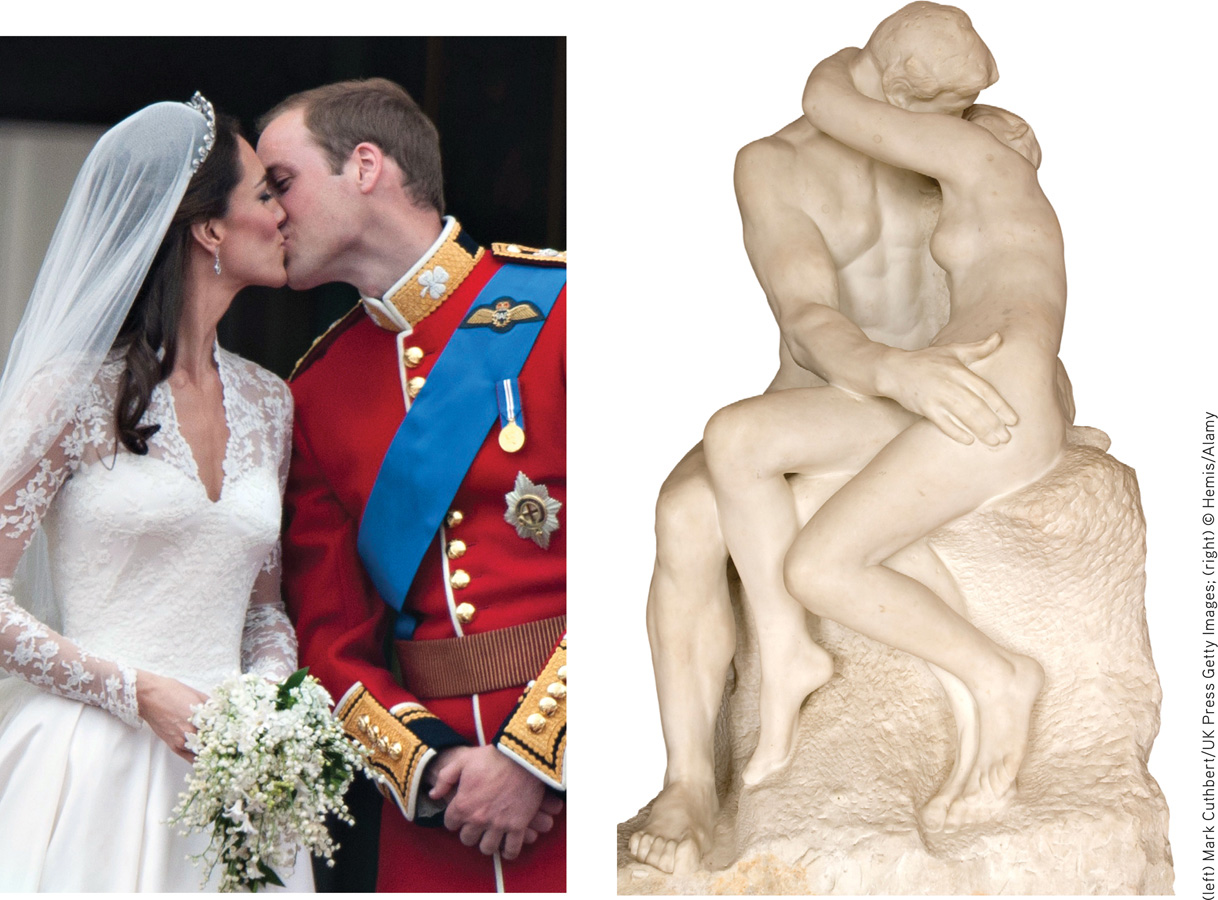
We are each in certain respects like all others, like some others, and like no other. Studying people of all races and cultures helps us discern our similarities and our differences, our human kinship and our diversity.
 is a research-based online learning tool that will help you excel in this course. Visit LaunchPad to take advantage of self-tests, interactive simulations, and
is a research-based online learning tool that will help you excel in this course. Visit LaunchPad to take advantage of self-tests, interactive simulations, and  HOW WOULD YOU KNOW? activities. For a 1-minute introduction to LaunchPad, including how to get in and use its helpful resources, go to http:/
HOW WOULD YOU KNOW? activities. For a 1-minute introduction to LaunchPad, including how to get in and use its helpful resources, go to http:/
You will see throughout this book that gender matters, too. Researchers report gender differences in what we dream, in how we express and detect emotions, and in our risk for alcohol use disorder, depression, and eating disorders. Gender differences fascinate us, and studying them is potentially beneficial. For example, many researchers have observed that women carry on conversations more readily to build relationships, while men talk more to give information and advice (Tannen, 2001). Knowing this difference can help us prevent conflicts and misunderstandings in everyday relationships.
positive psychology the scientific study of human functioning, with the goals of discovering and promoting strengths and virtues that help individuals and communities to thrive.
But again, psychologically as well as biologically, women and men are overwhelmingly similar. Whether female or male, we learn to walk at about the same age. We experience the same sensations of light and sound. We feel the same pangs of hunger, desire, and fear. We exhibit similar overall intelligence and well-
The point to remember: Even when specific attitudes and behaviors vary by gender or across cultures, as they often do, the underlying causes are much the same.

Positive Psychology
Psychology’s first hundred years focused on understanding and treating troubles, such as abuse and anxiety, depression and disease, prejudice and poverty. Much of today’s psychology continues the exploration of such challenges. Without slighting the need to repair damage and cure disease, Martin Seligman and others (2002, 2005, 2011) have called for more research on human flourishing. These psychologists call their approach positive psychology. They believe that happiness is a by-
 For an excellent tour of psychology’s roots, view the 9.5-minute Video: The History of Psychology.
For an excellent tour of psychology’s roots, view the 9.5-minute Video: The History of Psychology.
9
levels of analysis the differing complementary views, from biological to psychological to social-cultural, for analyzing any given phenomenon.
Psychology’s Three Main Levels of Analysis
biopsychosocial approach an integrated approach that incorporates biological, psychological, and social-cultural levels of analysis.
P-
Each of us is a complex system that is part of a larger social system. But each of us is also composed of smaller systems, such as our nervous system and body organs, which are composed of still smaller systems—
These tiered systems suggest different levels of analysis, which offer complementary outlooks. It’s like explaining horrific school shootings. Is it because the shooters have brain disorders or genetic tendencies that cause them to be violent? Because they have been rewarded for violent behavior? Because we live in a gun-
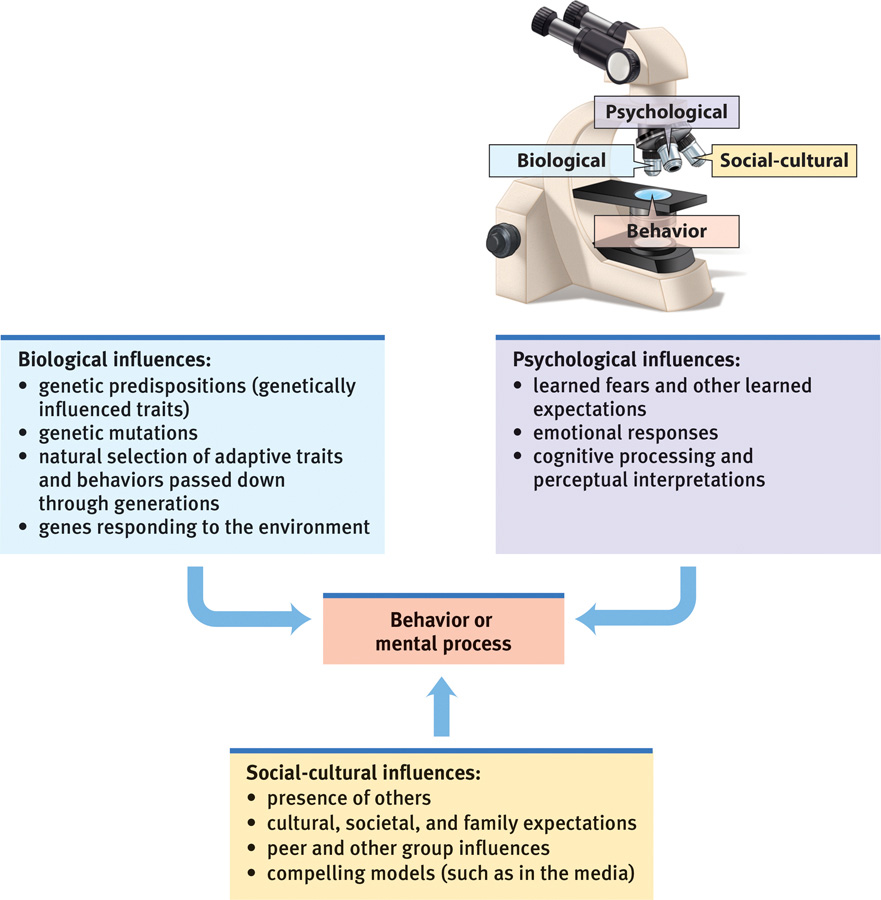
 Figure 1
Figure 1Biopsychosocial approach This integrated viewpoint incorporates various levels of analysis and offers a more complete picture of any given behavior or mental process.
Each level provides a valuable playing card in psychology’s explanatory deck. It’s a vantage point for looking at a behavior or mental process, yet each by itself is incomplete. Like different academic disciplines, psychology’s varied perspectives ask different questions and have their own limits. One perspective may stress the biological, psychological, or social-
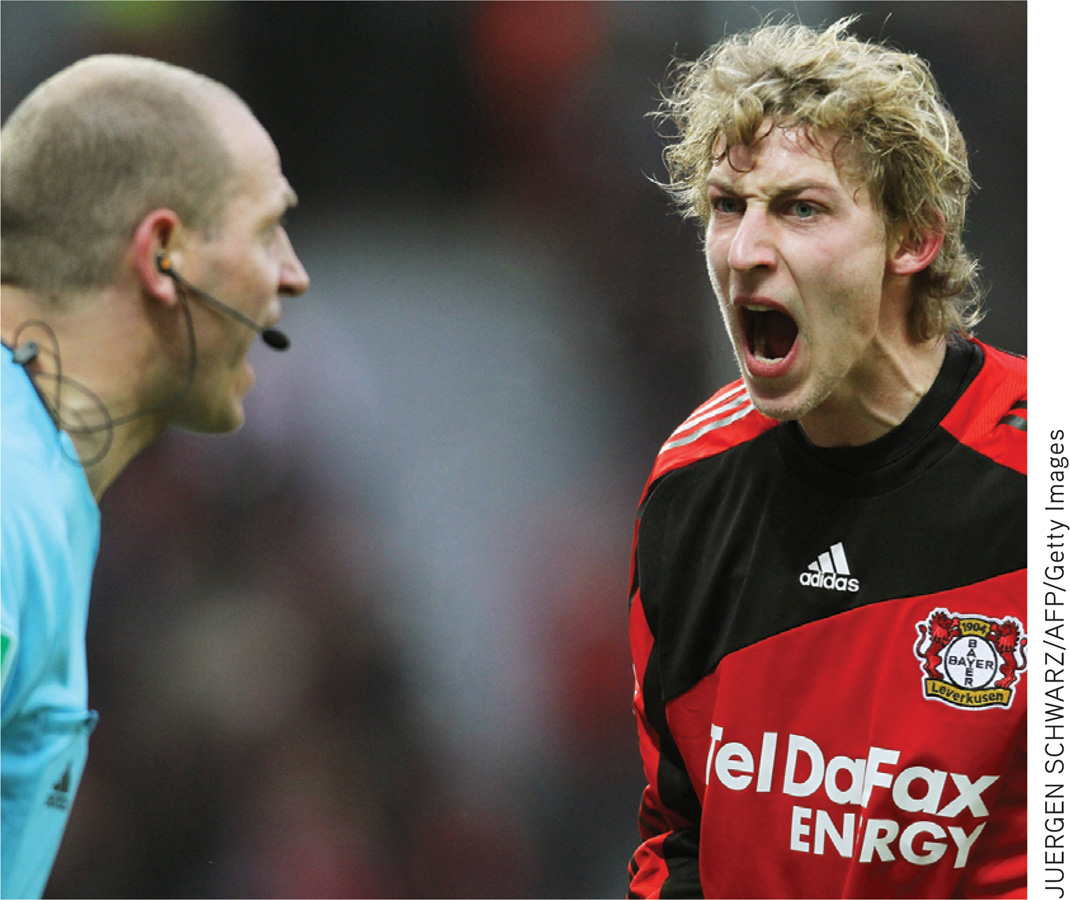
- Someone working from a neuroscience perspective might study brain circuits that cause us to be red in the face and “hot under the collar.”
- Someone working from the evolutionary perspective might analyze how anger facilitated the survival of our ancestors’ genes.
- Someone working from the behavior genetics perspective might study how heredity and experience influence our individual differences in temperament.
- Someone working from the psychodynamic perspective might view an outburst as an outlet for unconscious hostility.
- Someone working from the behavioral perspective might attempt to determine which external stimuli trigger angry responses or aggressive acts.
- Someone working from the cognitive perspective might study how our interpretation of a situation affects our anger and how our anger affects our thinking.
- Someone working from the social-cultural perspective might explore how expressions of anger vary across cultural contexts.
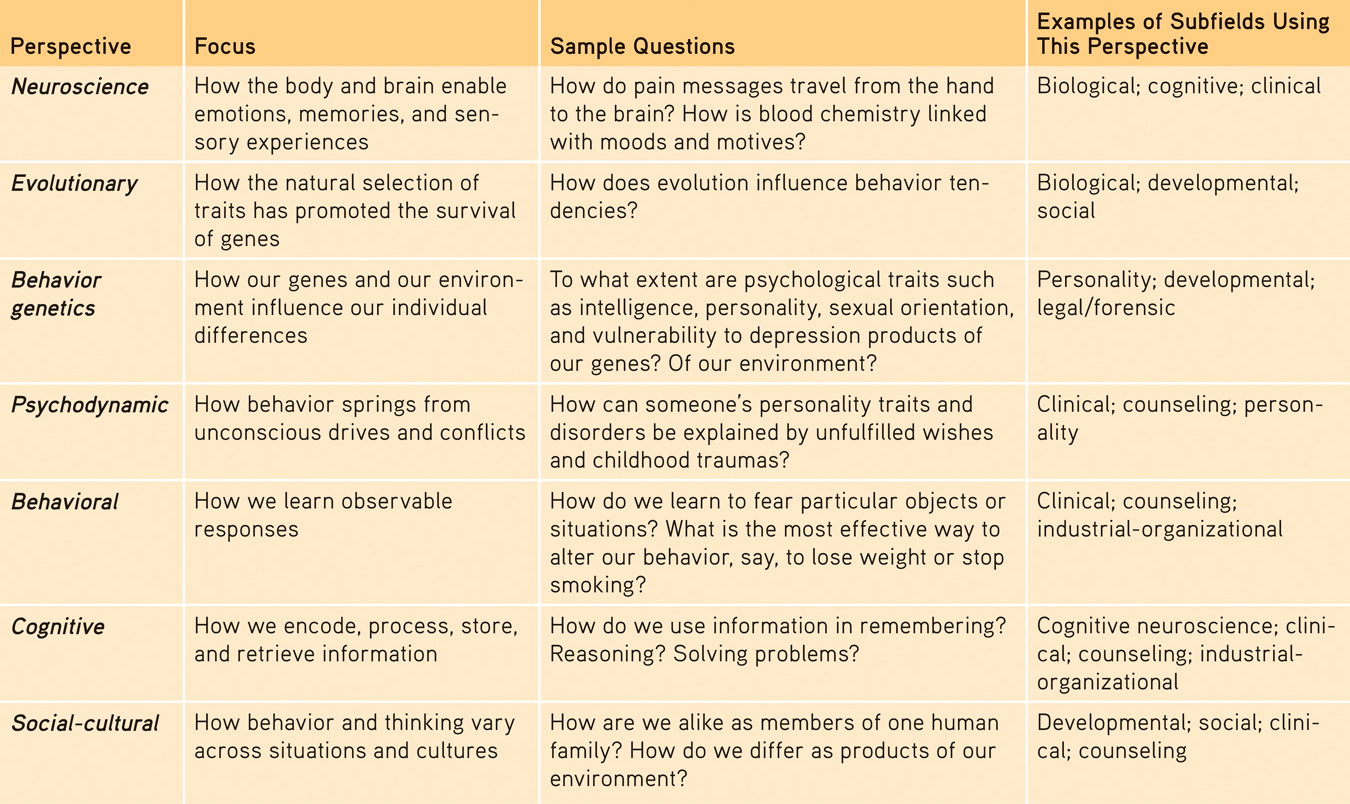
 Table 1
Table 1Psychology’s Current Perspectives
10
The point to remember: Like two-
RETRIEVAL PRACTICE
- What advantage do we gain by using the biopsychosocial approach in studying psychological events?
By incorporating different levels of analysis, the biopsychosocial approach can provide a more complete view than any one perspective could offer.
- The ______________ perspective in psychology focuses on how behavior and thought differ from situation to situation and from culture to culture, while the ______________ perspective emphasizes observation of how we respond to and learn in different situations.
social-
11
Psychology’s Subfields
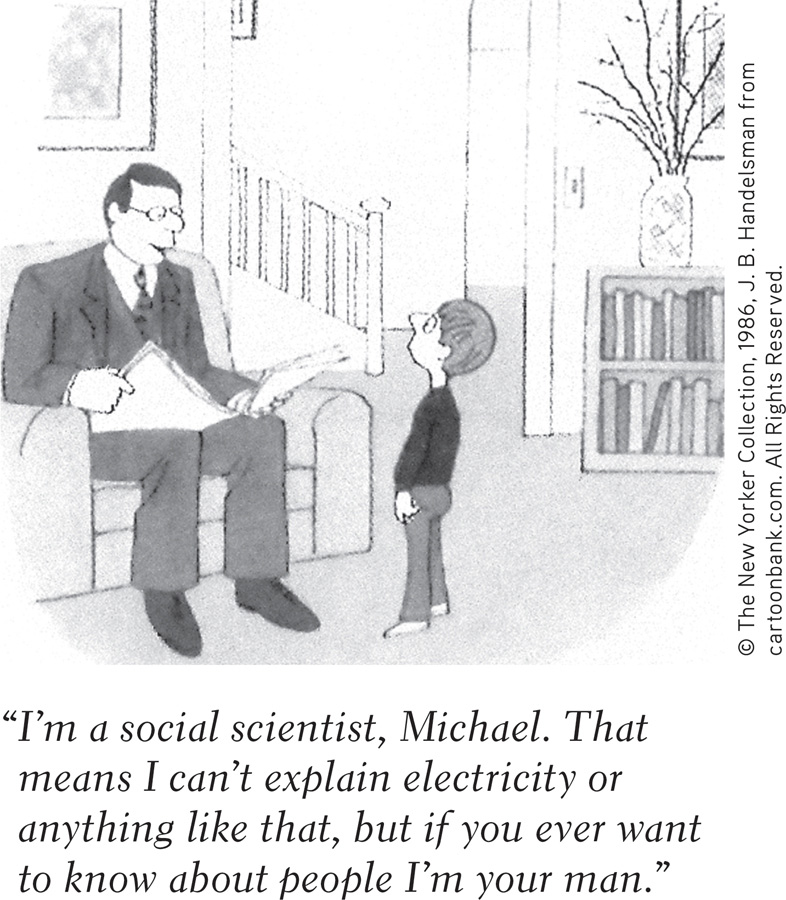
P-
Picturing a chemist at work, you may envision a white-
- a white-coated scientist probing a rat’s brain.
- an intelligence researcher measuring how quickly an infant shows boredom by looking away from a familiar picture.
- an executive evaluating a new “healthy lifestyles” training program for employees.
- someone at a computer analyzing data on whether adopted teens’ temperaments more closely resemble those of their adoptive parents or their biological parents.
- a therapist listening carefully to a depressed client’s thoughts.
- a traveler visiting another culture and collecting data on variations in human values and behaviors.
- a teacher or writer sharing the joy of psychology with others.
basic research pure science that aims to increase the scientific knowledge base.
The cluster of subfields we call psychology is a meeting ground for different disciplines. “Psychology is a hub scientific discipline,” said Association for Psychological Science president John Cacioppo (2007). Thus, it’s a perfect home for those with wide-
Some psychologists conduct basic research that builds psychology’s knowledge base. We will meet a wide variety of such researchers, including biological psychologists exploring the links between brain and mind; developmental psychologists studying our changing abilities from womb to tomb; cognitive psychologists experimenting with how we perceive, think, and solve problems; personality psychologists investigating our persistent traits; and social psychologists exploring how we view and affect one another.
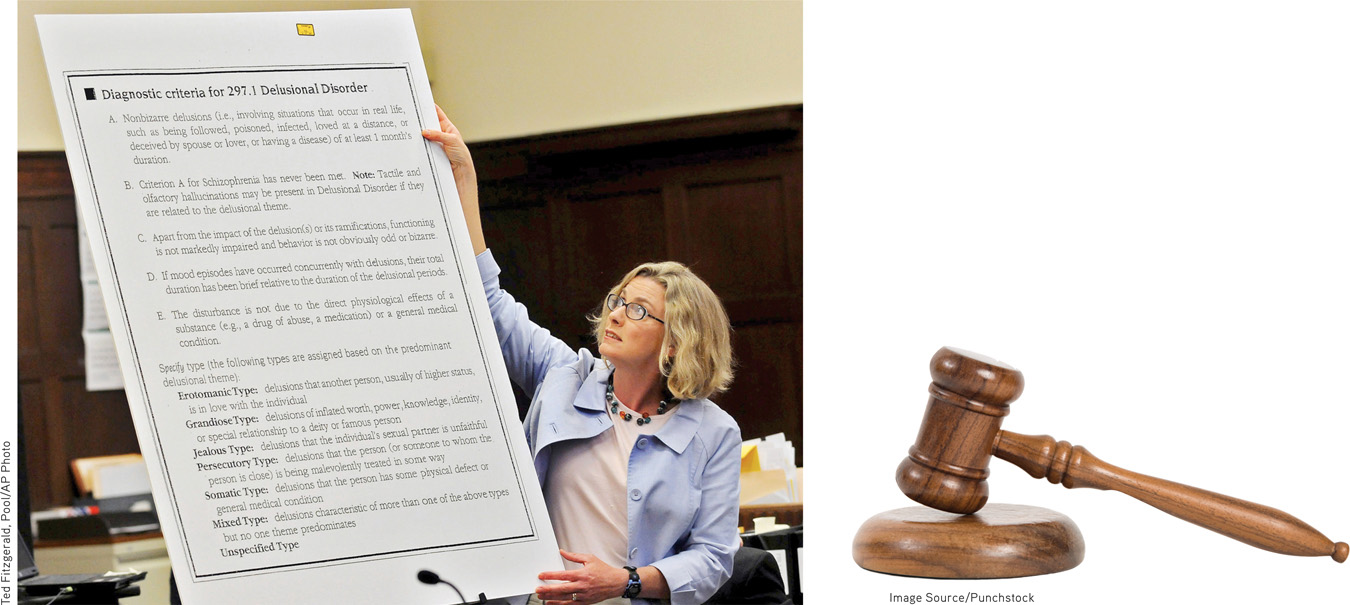
12
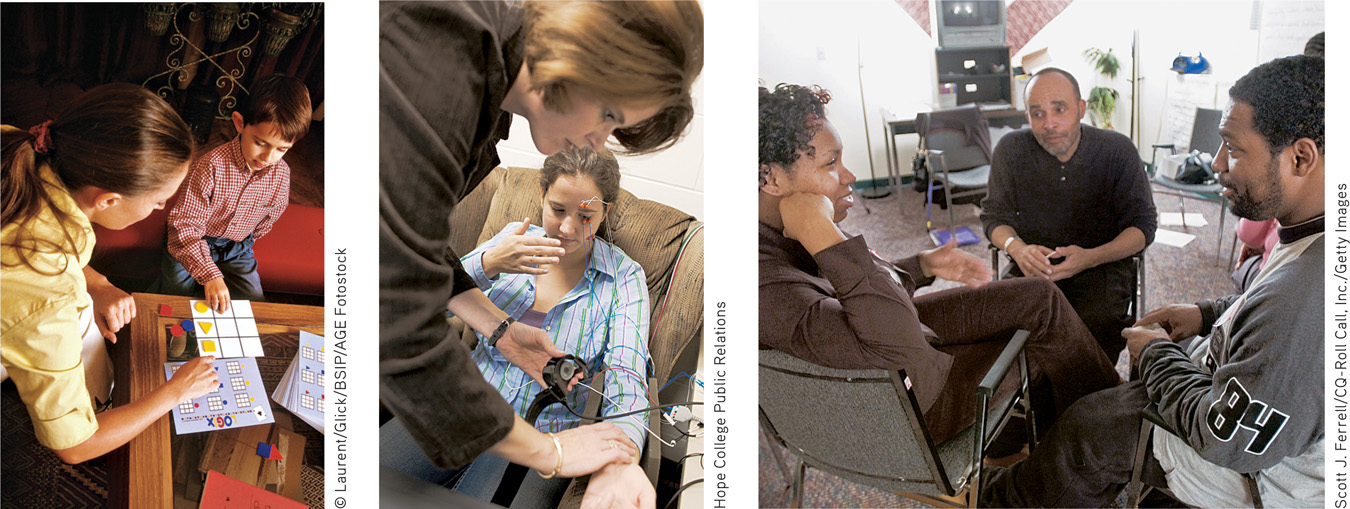
applied research scientific study that aims to solve practical problems.
counseling psychology a branch of psychology that assists people with problems in living (often related to school, work, or marriage) and in achieving greater well-being.
clinical psychology a branch of psychology that studies, assesses, and treats people with psychological disorders.
psychiatry a branch of medicine dealing with psychological disorders; practiced by physicians who sometimes provide medical (for example, drug) treatments as well as psychological therapy.
These and other psychologists also may conduct applied research, tackling practical problems. Industrial-
community psychology a branch of psychology that studies how people interact with their social environments and how social institutions affect individuals and groups.
Although most psychology textbooks focus on psychological science, psychology is also a helping profession devoted to such practical issues as how to have a happy marriage, how to overcome anxiety or depression, and how to raise thriving children. As a science, psychology at its best bases such interventions on evidence of effectiveness. Counseling psychologists help people to cope with challenges and crises (including academic, vocational, and marital issues) and to improve their personal and social functioning. Clinical psychologists assess and treat people with mental, emotional, and behavior disorders. Both counseling and clinical psychologists administer and interpret tests, provide counseling and therapy, and sometimes conduct basic and applied research. By contrast, psychiatrists, who also may provide psychotherapy, are medical doctors licensed to prescribe drugs and otherwise treat physical causes of psychological disorders.
Rather than seeking to change people to fit their environment, community psychologists work to create social and physical environments that are healthy for all (Bradshaw et al., 2009; Trickett, 2009). For example, if school bullying is a problem, some psychologists will seek to change the bullies. Knowing that many students struggle with the transition from elementary to middle school, they might train individual kids how to cope. Community psychologists instead seek ways to adapt the school experience to early adolescent needs. To prevent bullying, they might study how the school and neighborhood foster bullying and how to increase bystander intervention (Polanin et al., 2012).
With perspectives ranging from the biological to the social, and with settings from the laboratory to the clinic, psychology relates to many fields. Psychologists teach in medical schools, law schools, and theological seminaries, and they work in hospitals, factories, and corporate offices. They engage in interdisciplinary studies, such as psychohistory (the psychological analysis of historical characters), psycholinguistics (the study of language and thinking), and psychoceramics (the study of crackpots).1
 Want to learn more? See Appendix B, Subfields of Psychology, at the end of this book, and go to LaunchPad’s regularly updated Careers in Psychology resource to learn about the many interesting options available to those with bachelor’s, master’s, and doctoral degrees in psychology.
Want to learn more? See Appendix B, Subfields of Psychology, at the end of this book, and go to LaunchPad’s regularly updated Careers in Psychology resource to learn about the many interesting options available to those with bachelor’s, master’s, and doctoral degrees in psychology.
Psychology also influences modern culture. Knowledge transforms us. Learning about the solar system and the germ theory of disease alters the way people think and act. Learning about psychology’s findings also changes people: They less often judge psychological disorders as moral failings, treatable by punishment and ostracism. They less often regard and treat women as men’s mental inferiors. They less often view and raise children as ignorant, willful beasts in need of taming. “In each case,” noted Morton Hunt (1990, p. 206), “knowledge has modified attitudes, and, through them, behavior.” Once aware of psychology’s well-
13
“Once expanded to the dimensions of a larger idea, [the mind] never returns to its original size.”
Oliver Wendell Holmes, 1809–1894
But bear in mind psychology’s limits. Don’t expect it to answer the ultimate questions, such as those posed by Russian novelist Leo Tolstoy (1904): “Why should I live? Why should I do anything? Is there in life any purpose which the inevitable death that awaits me does not undo and destroy?”
Although many of life’s significant questions are beyond psychology, some very important ones are illuminated by even a first psychology course. Through painstaking research, psychologists have gained insights into brain and mind, dreams and memories, depression and joy. Even the unanswered questions can renew our sense of mystery about things we do not yet understand. Moreover, your study of psychology can help teach you how to ask and answer important questions—
“I have uttered what I did not understand, things too wonderful for me.”
Job 42:3
Psychology deepens our appreciation for how we humans perceive, think, feel, and act. By so doing it can indeed enrich our lives and enlarge our vision. Through this book we hope to help guide you toward that end. As educator Charles Eliot said a century ago: “Books are the quietest and most constant of friends, and the most patient of teachers.”
RETRIEVAL PRACTICE
- Match the specialty on the left with the description on the right.
|
1. Clinical psychology 2. Psychiatry 3. Community psychology |
a. Works to create social and physical environ- b. Studies, assesses, and treats people with c. Branch of medicine dealing with psychological |
1. b, 2. c, 3. a
testing effect enhanced memory after retrieving, rather than simply rereading, information. Also sometimes referred to as a retrieval practice effect or test-enhanced learning.
Improve Your Retention—
P-
SQ3R a study method incorporating five steps: Survey, Question, Read, Retrieve, Review.
Do you, like most students, assume that the way to cement your new learning is to reread? What helps even more—
As you will see in Chapter 8, to master information you must actively process it. Your mind is not like your stomach, something to be filled passively; it is more like a muscle that grows stronger with exercise. Countless experiments reveal that people learn and remember best when they put material in their own words, rehearse it, and then retrieve and review it again.
14
The SQ3R study method incorporates these principles (McDaniel et al., 2009; Robinson, 1970). SQ3R is an acronym for its five steps: Survey, Question, Read, Retrieve,2 Review.
To study a chapter, first survey, taking a bird’s-
Before you read each main section, try to answer its numbered Learning Objective Question (for this section: “How can psychological principles help you learn and remember?”). Roediger and Bridgid Finn (2009) have found that “trying and failing to retrieve the answer is actually helpful to learning.” Those who test their understanding before reading, and discover what they don’t yet know, will learn and remember better.
Then read, actively searching for the answer to the question. At each sitting, read only as much of the chapter (usually a single main section) as you can absorb without tiring. Read actively and critically. Ask questions. Take notes. Make the ideas your own: How does what you’ve read relate to your own life? Does it support or challenge your assumptions? How convincing is the evidence?
“It pays better to wait and recollect by an effort from within, than to look at the book again.”
William James, Principles of Psychology, 1890
Having read a section, retrieve its main ideas. “Active retrieval promotes meaningful learning,” says Karpicke (2012). So test yourself. This will not only help you figure out what you know, the testing itself will help you learn and retain the information more effectively. Even better, test yourself repeatedly. To facilitate this, we offer periodic Retrieval Practice opportunities throughout each chapter (see, for example, the questions in this chapter). After answering these questions for yourself, you can check the answers provided, and reread as needed.
Finally, review: Read over any notes you have taken, again with an eye on the chapter’s organization, and quickly review the whole chapter. Write or say what a concept is before rereading to check your understanding.

Survey, question, read, retrieve, review. I have organized this book’s chapters to facilitate your use of the SQ3R study system. Each chapter begins with an outline that aids your survey. Headings and Learning Objective Questions suggest issues and concepts you should consider as you read. The material is organized into sections of readable length. The Retrieval Practice questions will challenge you to retrieve what you have learned, and thus better remember it. The end-
15
Four additional study tips may further boost your learning:
Distribute your study time. One of psychology’s oldest findings is that spaced practice promotes better retention than massed practice. You’ll remember material better if you space your time over several study periods—
Spacing your study sessions requires a disciplined approach to managing your time. (Richard O. Straub explains time management in a helpful preface at the beginning of this text.)
Learn to think critically. Whether you are reading or in class, note people’s assumptions and values. What perspective or bias underlies an argument? Evaluate evidence. Is it anecdotal? Or is it based on informative experiments? Assess conclusions. Are there alternative explanations?
Process class information actively. Listen for the main ideas and sub-
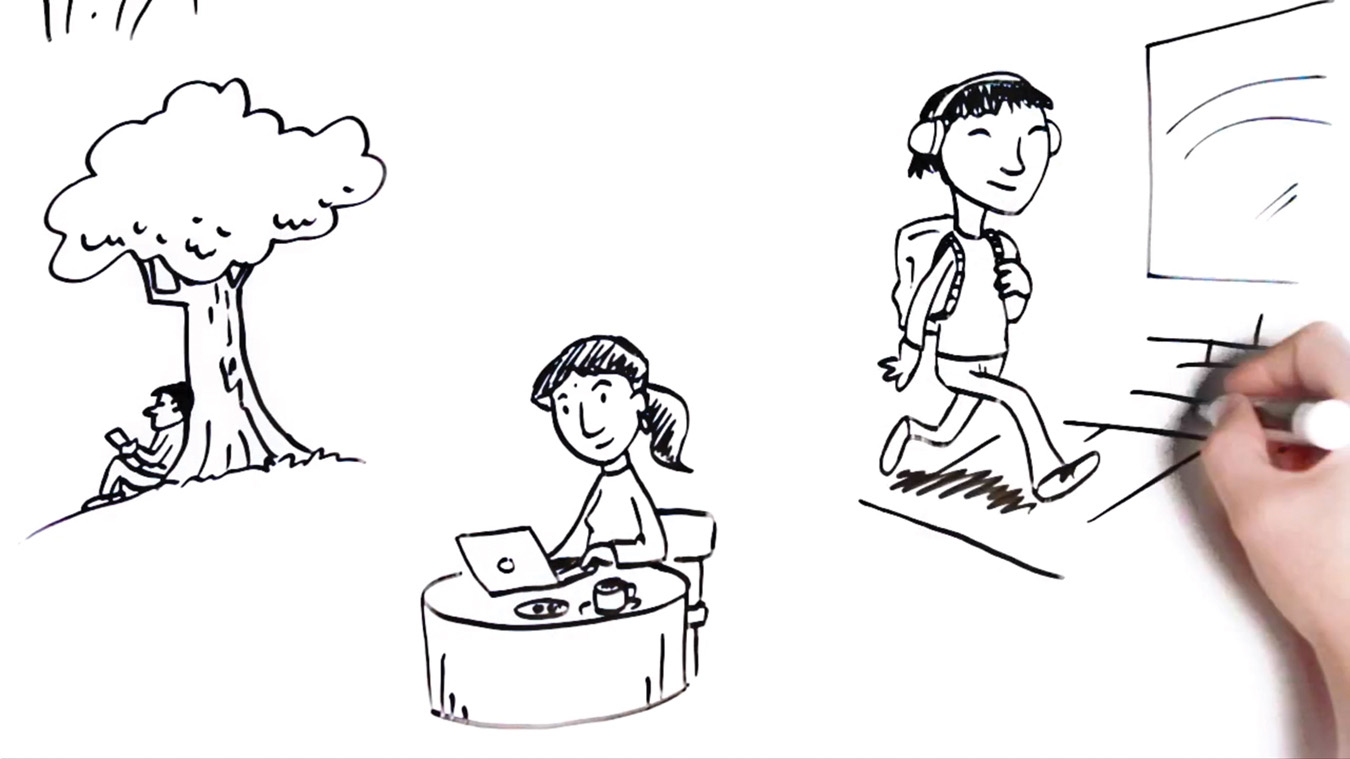
Overlearn. Psychology tells us that overlearning improves retention. We are prone to overestimating how much we know. You may understand a chapter as you read it, but that feeling of familiarity can be deceptively comforting. Using the Retrieval Practice questions as well as LaunchPad’s varied opportunities, devote extra study time to testing your knowledge and exploring psychology.
Memory experts Elizabeth Bjork and Robert Bjork (2011) offer the bottom line for how to improve your retention and your grades:
Spend less time on the input side and more time on the output side, such as summarizing what you have read from memory or getting together with friends and asking each other questions. Any activities that involve testing yourself—
RETRIEVAL PRACTICE
- The ______________ ______________ describes the enhanced memory that results from repeated retrieval (as in self-testing) rather than from simple rereading of new information.
testing effect
- What does the acronym SQ3R stand for?
Survey, Question, Read, Retrieve, and Review
16
REVIEW: The Story of Psychology

|
REVIEW | The Story of Psychology |
LEARNING OBJECTIVES
RETRIEVAL PRACTICE Take a moment to answer each of these Learning Objective Questions (repeated here from within this section). Then click the 'show answer' button to check your answers. Research suggests that trying to answer these questions on your own will improve your long-
P-
Wilhelm Wundt established the first psychological laboratory in 1879 in Germany. Two early schools were structuralism and functionalism.
P-
Early researchers defined psychology as “the science of mental life.” In the 1920s, under the influence of John B. Watson and the behaviorists, the field’s focus changed to the “scientific study of observable behavior.” In the 1960s, the humanistic psychologists and the cognitive psychologists revived interest in the study of mental processes. Psychology is now defined as the science of behavior and mental processes.
P-
Our growing understanding of biology and experience has fed psychology’s most enduring debate. The nature–nurture issue centers on the relative contributions of genes and experience, and their interaction in specific environments. Charles Darwin’s view that natural selection shapes behaviors as well as bodies led to evolutionary psychology’s study of our similarities because of our common biology and evolutionary history, and behavior genetics’ focus on the relative power and limits of genetic and environmental influences on behavior.
Cross-cultural and gender studies have diversified psychology’s assumptions while also reminding us of our similarities. Attitudes and behaviors may vary somewhat by gender or across cultures, but because of our shared human kinship, the underlying processes and principles are more similar than different.
Psychology’s traditional focus on understanding and treating troubles has expanded with positive psychology’s call for more research on human flourishing and its attempt to discover and promote traits that help people to thrive.
P-
The biopsychosocial approach integrates information from three differing but complementary levels of analysis: the biological, psychological, and social-cultural. This approach offers a more complete understanding than could usually be reached by relying on only one of psychology’s current perspectives (neuroscience, evolutionary, behavior genetics, psychodynamic, behavioral, cognitive, and social-cultural).
P-
Within the science of psychology, researchers may conduct basic research to increase the field’s knowledge base (often in biological, developmental, cognitive, personality, and social psychology) or applied research to solve practical problems (in industrial-organizational psychology and other areas).
Those who engage in psychology as a helping profession may assist people as counseling psychologists, helping people with problems in living or achieving greater well-being, or as clinical psychologists, studying and assessing people with psychological disorders and treating them with psychotherapy. (Psychiatrists also study, assess, and treat people with disorders, but as medical doctors, they may prescribe drugs in addition to psychotherapy.) Community psychologists work to create healthy social and physical environments (in schools, for example).
P-
The testing effect shows that learning and memory are enhanced by actively retrieving, rather than simply rereading, previously studied material. The SQ3R study method—survey, question, read, retrieve, and review—applies principles derived from memory research. Four additional tips are (1) distribute your study time; (2) learn to think critically; (3) process class information actively; and (4) overlearn.
TERMS AND CONCEPTS TO REMEMBER
RETRIEVAL PRACTICE Match each of the terms on the left with its definition on the right. Click on the term first and then click on the matching definition. As you match them correctly they will move to the bottom of the activity.
Question
ZVv5f6Jsv6ts15BNwKJq0EhHQ0Svp9iQxMtZmPtDFDoO02eph7Bjfo8FGbei7GxSj4KIwT/x72Oz1sZ274JgyIFQ5ujeGpZbo5sED5tDcN6zvcTH688LiaLYx2id7hmuiWTACejDfY+6OKxw/YFtAltCiUrvctLUGPB7Li0ef8UjG7f7UJ7RrNwIOlrci+9Y3qjCn9+0viJNleB60Krwz/8I+OHUBeMsOjMSsxRWj2fd1Ef92fU4fDc/kqvYpVRNkBAmcZJneNapj6RP0IREcNjdbsehJIKQPu7M7YYMN5Udne3/vpVfUxdyfQx+VAwMVZg6mOVt3+Fa6eGXwVqU31FR3UY5yUuBbnNSaGtrpZ9wQziTohGygpngMY3cPjSGKLd47fJPtkY+5dcK4iY39J5i77/3Ep2NXgiO12V1cSv8+LRowTdVrrImiHXjV7W1blOI8VoYAZl+vjfsOZEcLD23zEls8+q6AmDoIEkuufU2j2tB3r7yjpKUV8Kq410peSmTntGwKET8x6zPfM4JJYTV0VYAbzUbehAldBeY5tcGoSdwfvVBfekgg8xt1isMTGSpn1VNxpIzM4VIl8UzOP383j54xmPbhdS+/Y8DlWTYY2BrV2Ijyy2IAM4BpIKx1VIlpjmFDoviHCvQHOb2EDxZSdfjinxZ4cKVN0z9/tLfTl2rTJDMKSSAagCwTwyw72PplW5t7EbWLouy/Y2y4cYRWPkaLeqLqXsH/5GsyKy8gf73FN2SGt0zzfeQCwTvWXZKuXB8w8wokJMtBE7+X3+lxtCFXXJW7MSrGMo4tfXAxZgJnRW20T9FZeN4TU7H96EmAe7g5xQZpjaa7PQ8A5tVRL54B7mwgsOH23tV1FiLBFPYpJzPELhlj/gD/ijNhEXHOUsLFx8n07YeuYVG/feFOvtc8foqpS3mh434bw5dPSwMSGLAHVrHjOHxr/ghJOjvqjN5VRG0duuMyoRIIQOGsB2osB6etHBfB24JQjc2G7Q2I9xHpFM54nHazDxL60p3ZrVt9M8A+4PHz9T3D8/KVmRoz3AFwXd7ymkFN58PPN22dKMRJum/O5HOecOGahDOuy2JrxRfKix9JWYRq6A7ukQ1f3WZxJJnOizStUEs1Pd+W6j9GxSIr7eQRGAG4YWJGuPBhAowQ+DM0dp6t6ATQ9/6eUXlsWhy+1n2mcyVla2auP9YTWYpVhCtGtnW9EkIW8K/cpe4vDzN8/Az7PKh569Tk5T+LXd6ak33BBBjZD5P+QAdy9+LKJgQllxGRvQbZ9sPGYGmnJfaA5Kp1n79ZnNmXI046W4cInn+vR2OWWoUuspvxSxyuJ+e0sk9nEQVddS01vPYeD7skGraGbWaUzO/t/bMXA4MOMb5XDnHG4/ow/thKlodIjHOzABFK6nzrLap0WNmBLk7iar1bSEYhZyUUj3BzXtlCLZ6PX8gycCxl5nnwUGhxGY5qpFrOttNFS9u397kZfxvEpW4hnJaXMzWCt/9lA3hwEAME0OABJx+wOAkKZpYbF+O5JhNROcTA4kI9c8JO+EqKbS9FVZQBrzC2gobhlQpJPSMd0BUQ+Ye+4C4e/i+Xn+L+zVGij8Or10t0L/ICTH8s/BpwKKzGidS0J7ZPN3rNFsluoXBmCX6zYwk5/NMdlT/4g1H8JlmvMLaX+Gr6qS3rUambzS+WAjxIB03AQZDFOaZjGrcS57x6qwSZc2de6LshjY5RQF0jkOdMkO9IdaAuNq0LqW+0qySwt7uucUSF1WvpzBhP64PFQwNviHGYGTURxWvwa8gaKtWXudW1ySMMMkjlsXWtpheHpwjGbyH13Jps6/Va5ynkasWP7MKp3SnloMx9VG87IXeDVA9VohoItesXy6FWOFrLwzKeCjLVK9/FYJgViKys2wstipSUssPxnGafR7MAH6gpc0CETJUrlK76YgtZ3fj9taYxgZqeewoqGbmVP7Ln5Yt6l3YEPcehuhS0utZ8+znuLqWP8NJBNrjds6//qLT+7CQhbib3QLAkT05G2ChBA9Ydv9vES/noS4hbmXNz7eHfnBUfELpz6ziP3ltqUN0L5nNr0R6D4vsbCgSj9n5ZrynCHzeJi/+vILLgYr6ovZ6upW2IBVL0eosg1du4v5rtiD2zR27omamtrFC/HTGUvLNLwbGWlQjfpeOK80AAlwS0hnDMJ53wS6WcBbzGsGUEQtrxCPcvbptvjMIVrMvRmMioTRR4l16RMPjAYh/gAMPhyVRwHAdVVMsmCR2rWHjCuppdwBWHAUv2oayTXXTAIbJMpq6Ym6yB9Yu1DsxxV+/314kuxA3B5PqUYtG/n47kocjLXUj8HQdp7XOE+lof0TqcMvD6hqGttpA3ww6pl8Svlb2xlWhWlJ7qRZor91X8faAPgZbvyCATJgrVfrcnC2UbQRHb+OBlVeD9sfWG70FnPmDw7EnyI0UzkVWoypqMO9kMibHUHD5i9L+56Q0UW7namueVQ83ujq7dkLC4NsNC/jNm4apfN8pczBgPhndl7J6MtSdXgKxpLfKZ45M0rSIJpia7N5/6ckHCxfjoLkV1rE1MstpaJwDGTcV5okE1MXtGsfhctGnKO3elK3nEbtKJmTllSnCYRV8T/wBh0WAdWz7bQu+pK1h/LSrzUQZmDKFq3M4v6eV2Hg8RNXZ7Z2zzsTqn0z/E8R9TaBlODcOWrDXZSTORRu7d7Wc3O9yR/61n8LnXRMLLPJyFtlCacmXukIOVjf2C6Mdnqa11vFdvB6WInxa2emrBBsd66/YQbf5bnEzXcs+SJ2mmm+bUzLRJsVcNGBSxeyZrNLwwOteoqQfB5WOJFP1DZ+aOpe6KdK1twGRAzcZZpxO62ile8lcqUzbsKzT88ENFzVLGEAnJtQahzwN/diUP5uvioWQKBYoOEcOmbfucBTjXfr3H4ZDNgqABOp7CqXa7rscbMIl5uTs9y7TW+yGBm0J4Q5RaZXTETZqVeM6ebBAeZEGgG/+bH8FE2vxRw+Mtzs8cP29r/SK80F3+IbQY34TkuftfbqKd2pN+1NAXt7dGYj/FxHBCjMT+D0rEr3Q4AeUIP2EbrYiz2vtZM5dIHCi/cnuSUbQihfMtu0TdP/qEvkp19K9iYiGuMQvWqMumNfIpMrMmAW6mcVRpKQ3spEdCnh/M7gOQdIB+xn4KaTDCYv4OlOlw3tAqVkvMLdu5qaDMWF/UfIKQtZx7/Ii3xtVbvCnhqaY9kt1PCiPaJ3Ul6oWdBiuq1mQH5YyQwKCdGzXtqZderGjfDORMBGt1hlSpUfRM7qWFlZvN/tWACMKTF6JfkcxBW1rTW9jd1oJB3qNZ50mxWgLkxS9K5KRuwUjCXpqOWObHNvoaaIq+9ZfY7RkG3KthRtxm3BdNwvEig3YIphpK08gY3yznUstIuRZdOwGHY/1kzZ/aLS8TcpcUFpKO4ORyF4PZocLJXHwRsn4V2dpGtizJhuf69v3QI2UcKZsOtT/auUEo1DwHCwRfPsfciW3ecjLr7pqrrxdU6APCe5S3xMQ29bfV7EWho7omJt1W/+K+M8zN/qflikz7bLmKHhYoZcEv4BWdAapfOeNLzCvdMYYvncSWN4ij8KX6lPCFSYtm0wJo3aHYr6JUJp2R5kX69/i0Nhve6dUTcPJlMQRMlkGRxSuEbMiksiPTA9Fw+qJoUu9S0FEGJJs4B2h+keORt1jO/4B/XR6or44CoTd5RpyBrge6eNMX3b2J4XDjP8hEJjxS1aKgp8ilt0a3JnAFoXooKIDEoo4WvYuecOXSi7A+jRBviPWMrAPQxs4Lv8SL4MMF/Gq6MSqf//6mVrVzFh/OceT1w9GfEAQvZCAYxYBjS37JSOlCJhMG9og07D8dkKFuH21lu/lGiMwPUJmvf2p1U9gb+oudm502r5EAy2i3lkVlQxf/YYM9S9qdm7D3lhSsY6QEWBXmft7FtwtEP1ez0KLf4zSFS2BhYt3Q8PTuI6UPijcr++rX0ljip2ttKOWni/XqqfGzVHqbLXMcULZ5dp+UmoCwmB8iAN3GYfpwQtDOQNnbIE+EGXjMaEBYy9SZO2IBEUgKYMV/rdES3aHYqKVWxnDrnZyj50ElW4p3B0raQ9zsmCuPYyZq5qk2KDSlgW9i8+s6L37cfdoW11LNfcVCQBzv3wLQNgWcfC/UXFo+PhcTOgg66B/ihZkjHT0FMh38dA4zt+c91OemTASxWCgIdk9Q7C+YflOlV93HuD4X5sV3atSSx44K0PyAAzv/WcW93I1BWycy/X9q87HLMtcJ28pX125dD/ngMBCWUk7+H/Gj/+uqYOhajGmi7sFJREmN2ykE8GLEaZ4bq+jgF3un4RJ7mjTtwVaYTLgtm657/h7HitAbDMmPFkC8yqbyprBQcn/rGnvFvPNaNj9+BrT4HZ/+0pstFCDsKE1FmjEUse  to create your personalized study plan, which will direct you to the resources that will help you most in
to create your personalized study plan, which will direct you to the resources that will help you most in  .
.
TEST
YOUR-
SELF THE STORY OF PSYCHOLOGY
Test yourself repeatedly throughout your studies. This will not only help you figure out what you know and don’t know; the testing itself will help you learn and remember the information more effectively thanks to the testing effect.
 What Is Psychology?
What Is Psychology?
Question
1. In 1879, in psychology’s first experiment, Z0S3fL95ujP46uw4TEFSDl6siJ4= and his students measured the time lag between hearing a ball hit a platform and pressing a key.
Question
TEUrSCq/Wy8mUOi9iGJT7BQKiihPPcewN7o3a51VlQXPh9Li/TwFiiRrjpJmqTRjmt5y1ckW8M2B07fehor2AXxZC9u2vl9QtNasLAHY3Ir4llGAOdYU10lq7RNOHpxASu57vIYMwSQj+6CPMJHwVKpHVpBtzBwBhVWJ4zjsJdnUq7MROmrt7nJvdVfODoNMHDUgDcGS++0b8534t+nYOu7qWlThl65n5zWVJc/A2VOu5IXkPOPRNbqWr/v8LnpECrPEeXp/JiDktjjxE5Ehc450HJbJ51Vwrf5nO2BV5IyoDSJ18BRSJAJr3oLzX+9lHfGZKu9JSvRc4Syyl9ZfEVefi3whyCM2RwjjYnIejQj38cbTJGnuXC/aklRzThMLybdRFaEmKSbL8kBkuSluHwYm7iU=Question
OgPfcnWI7qAxUdciK2kt0sRojGFzWLhRxoBzBCWFCvRtO5/CKprHKdtEDz4N+BywuHsb6A+2w0GQU4z3nrU0MV79EeLpW5B2+UiZzUnBkCM84ZIKeQRqYZKuZ4uAU1hzqb1J/oKkS5jwqjPnD5E1MZq3F8OYO8+sHo8nSlAe63Pdp4jl6KHrdWoYiZnQHrkdZt/qmMR1ykyil3YOpyUJ2LRfuQbZ/rz84EkZDb0IAC9ix00Zy5E05cjv34XsQAA9viN9cQP90axF/sCqVUMCLXnh1d/F85mB1+Al5Yk7sd4=Question
9Hxp7YI+FiPYYVsK4dgcpk1MVnYeODPGooJnMqprYyU6bFlwwHTR2D+REDB+Q6tEB4pKi86XSN8wvPE/xDuCmIC4IqfbF+Vr7x8H/Q09i4pncXHObNSyEHN1KJt59Qoy8kpeUXwSv5e9nhIfh+hO91fOvRFdn7e7/pfUIBL2Y2yK17zhpwvuwYub2nU0euPUaYaePkjBETfjyqtK8vrd5HPwUbo52dRw8ssOO50hsTUnlVeuTs7+w+4IyA9HpYcRzNP4tvyl7dZWqrRgKv55xA==Question
KbG1YDfSCLk209oin6gSbfixOm2BsrriR8nDxEsk6vQFKBVxlYkfXgAb/IuRZNyJEp/NioR3ykGF6ls0WfBNGhArRwbx+PYIHXKr8lBdwLPjIixrLwSggXKyL+FQxqjgSZ13LCS56lw7EziVxieWoaeXRNU=The environment (nurture) has an influence on us, but that influence is constrained by our biology (nature). Nature and nurture interact. People predisposed to be very tall (nature), for example, are unlikely to become Olympic gymnasts, no matter how hard they work (nurture).
17
Question
FIANB7DBkpTKxApF81NBm6RjEGNn1pqWVZyK9m0riHx7bA4oO3AE92e+29o1nR0gh3Nhi9/vzVKhQ5MKb/98TxtomChYTPxVEgNkuRSnsE1iZn7HaqXRcUBFI+pphNco9JAqvD/L6qvPD46QGGTgEtwswUFLxPwTHHdd0OXR3ZBsa4PXO7q3xh+TBZJDU5sF7gh9ezKR9VDVjplTMfrFogGj6kqxqbzJmyUKHTbB/0vyt0GI/Oqo6WxD8IjKygEpmkbqncSgZp2JoyRlw55fe10NbHwGSHv88X7UIaY0ORENk3drnkp3fYBc9u1OAA48fSEmmBOEnJep1ueL1De7Q330Z8MsuWZsUG9LY5wuJVdYUy6TQuestion
7. A mental health professional with a medical degree who can prescribe medication is a t2MfjXSfPk/f+J4BZNwWb5mj+8w= .